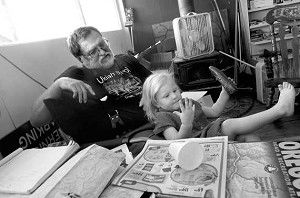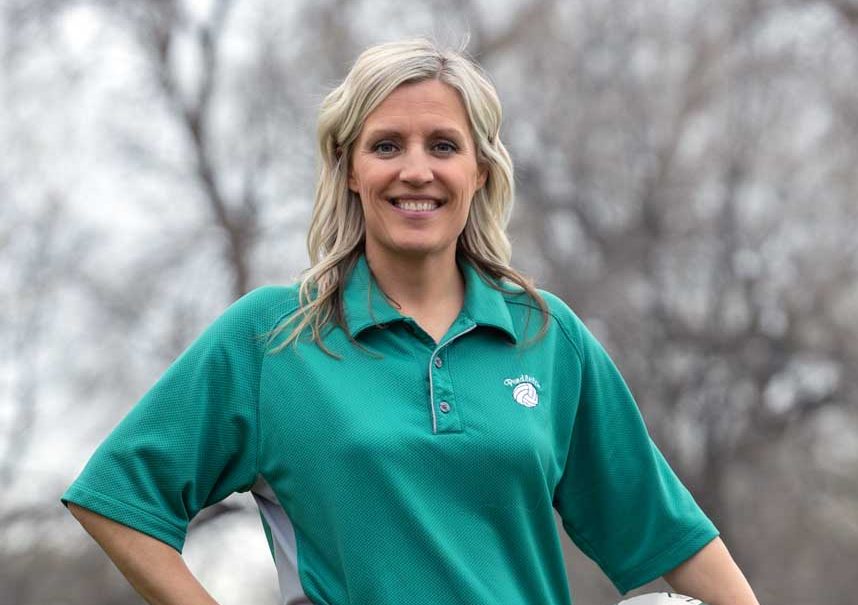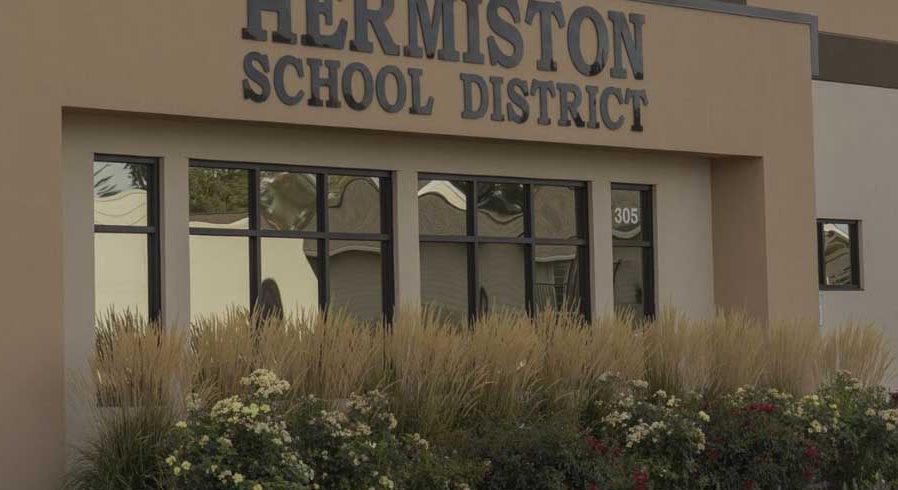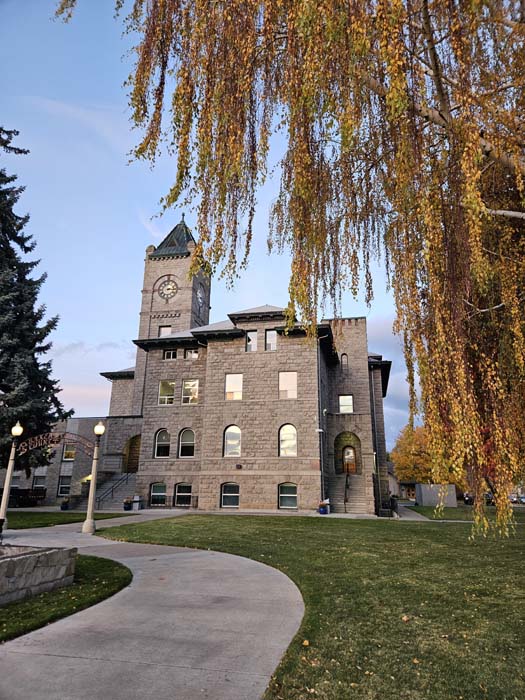Small town of Ukiah’s mantra: Learning to survive
Published 4:58 pm Saturday, September 20, 2008

- Clint Barber, former Ukiah mayor, baby-sits his granddaughter, Bella Orr, 3, during the day Thursday before going to work at the Rhodes Supply store in Ukiah. <br> Staff photo by E.J. Harris
Ukiah is a place where life takes a slower pace, residents say, and people know each other. It’s a place of great beauty and the jumping off point for hunting, hiking, fishing, camping and four-wheeling.
But Ukiah also is a community in transition.
Enrollment at the school, once several times what it is now, continues to decline. Were it not for the fact that half of the pupils are foreign exchange students, it might be difficult to keep the doors open.
Like so many Eastern Oregon towns, where employment opportunities are limited, the population of Ukiah is graying. The town is transforming from a place to find a job and raise a family to a place which attracts retirees.
That’s not all bad because retirees are generally self-sufficient, don’t contribute to the crime rate, like to volunteer and bring a multitude of skills and interests to the table.
But for those who still have children at home, the declining school population and the lack of employment ultimately will make staying in the community they adore something of a challenge.
Welcome to town
Ukiah is 52 miles south of Pendleton on Highway 395, 76 miles from Hermiston if you drive along Interstate 84 before turning onto Highway 395 – or 90 miles if you take the scenic route south from Hermiston on Highway 207 and turn at Heppner to go east on National Forest Road 53.
Ukiah’s population is about 260, according to the League of Oregon Cities. Oregon Blue Book says it was incorporated in 1969.
From the mid-1980s until spring of this year, Clint Barber worked as mayor.
“An older guy (the former mayor) I’d known all my life was moving out of town and asked me to take over for him,” Clint said with a laugh. “I hadn’t given it much thought until that point. I knew someone had to do it.”
He said the job mostly involved keeping the city water and sewer systems going, which he said was the reason for incorporation in 1969.
“It was more a way to keep things moving forward,” he said. “Someone had to step up and do the work.”
Clint grew up in Ukiah where his mother was postmaster.
His wife Norma, who teaches at the school, was Oregon’s teacher of the year not long ago.
Carole Picard has lived in Ukiah nearly her whole life, she said. She’s only been away a total of three years. Her father worked in a sawmill and soon after her family moved to Ukiah they felt incorporated in the community.
“When I was a little girl, everybody knew everybody else,” she said.
She remembers more kids in the school and more jobs for families. Carole said the number of kids has changed. In 1950, when she was a child, she said there were 85 kids in the kindergarten through eighth grade alone.
Elaine Childers-Gilliland, the school secretary – and Ukiah’s acting mayor – said there are 41 students attending Ukiah school this year. Of those, she said 23 or 24 are foreign students.
Like other small towns, losing the school could mean losing the town.
“The school is kind of a center hub,” Clint said.
He said most weddings and funerals, along with community activities, take place at the school.
“We’re one of the smallest schools in Oregon,” said Clint’s wife, Norma. She remembers once teaching families with three or four kids each. Now it’s very seldom if families have more than two children attending school, she said.
Norma said the school district used to require employees to live within the district where they teach. Now, that’s not a requirement and teachers commute, further reducing the number of families in the area.
Though she believes Ukiah is a good place to raise a family, Stephanie Picard, Carole’s daughter-in-law, said there are more retirees moving to the community, perhaps attracted by lower home prices, the scenery, the peace and quiet, or the safety incumbent in a community where everyone knows everybody else.
“There really is no employment here if you don’t work for the (U.S.) Forest Service,” she said.
Local jobs include the Forest Service, working for the school and the road district – but that’s about it.
“There used to be a lot more working families,” Clint said. “There used to be a lot more job opportunities available than there are now.”
Clint says he’s stayed because his wife, Norma, works at the school and he’s taken on running the store.
He said he usually gets good business during hunting seasons, but with higher gas prices over the summer, business has fallen off. Plus, the lack of working families means fewer people buying groceries locally.
Clint resigned as mayor in April because of his opposition to the Oregon ethics rules. Like many small communities in Oregon, the rules and their consequences – resignation of city officials – hit Ukiah hard.
Besides Clint, councilman Ed Farren also resigned.
Like other officials, Clint said he opposed disclosing information about his family.
“The family thing is completely out of line,” he said. “I don’t think they need all the information they’re asking for.”
What does
the future hold?
“I don’t think Ukiah is dying out. I think we are turning into a retirement community,” said Childers-Gilliland. “It has been quite an eye-opener. It’s been an interesting learning process.”
Carole agrees Ukiah is turning into a bedroom community and a place for seniors and retirees. Also, people stop in while on vacation, during mushroom season, while gathering firewood and during hunting season.
“I enjoy the community, the people and the mountains and the trees,” Carole said. “I really enjoy the solitude and quietness – not so many people. I don’t know everybody in the community, but I enjoy driving down the street and waving at people. It’s a good town.”
“I just like being away from the hustle and bustle,” Clint added. “It’s a little slower lifestyle.”
But he’s not sure if that slower lifestyle will weather the changes ahead.
“Whether Ukiah or Eastern Oregon survives change is in decision now,” he said. “We don’t know what’s going to happen in the future.”





